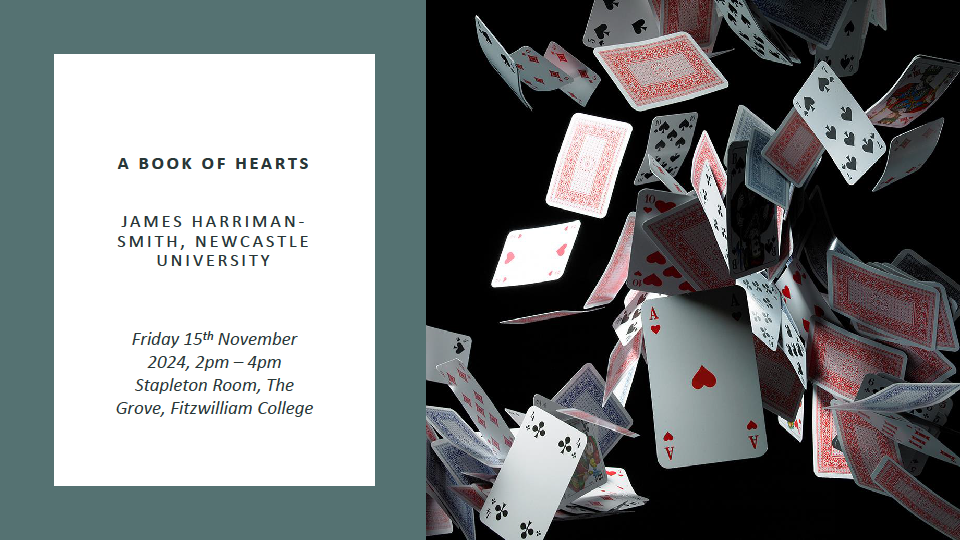Location: Early Modern French Seminar, Fitzwilliam College, Cambridge

In both Centlivre’s play and Préchac’s novel a game of cards called basset is rigged in order to become a vehicle for operating on the affections of a character. In such a game, every gamble is shaped to have a specific emotional impact. In other words, the game itself becomes a kind of performance inside a performance, an embedded form which reflects and intensifies the message of its host.
In this paper, I examine Centlivre and Préchac’s portrayal of card games as responses to growing anxieties about gambling in France and England at the turn of the eighteenth century. I argue that, in the Frenchman’s novel, the power of the rigged game over the heart is ultimately shown to be illusory, yet no less dangerous because of that. As for Centlivre, whose play was inspired by Préchac, her script insists instead on the power of performance to direct emotion, especially when that performance compounds acting, personation, and deceitful card play.